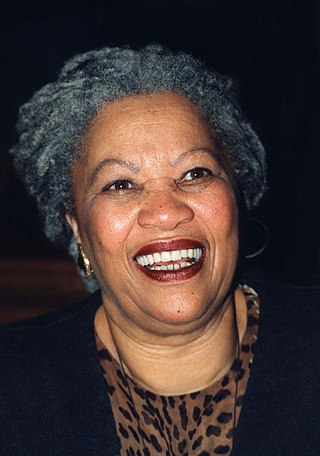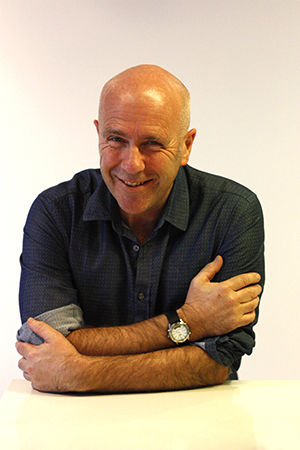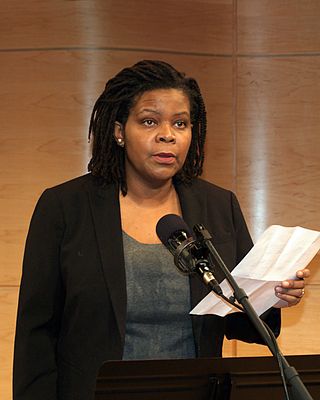Related Research Articles

Chloe Anthony Wofford Morrison, known as Toni Morrison, was an American novelist and editor. Her first novel, The Bluest Eye, was published in 1970. The critically acclaimed Song of Solomon (1977) brought her national attention and won the National Book Critics Circle Award. In 1988, Morrison won the Pulitzer Prize for Beloved (1987); she was awarded the Nobel Prize in Literature in 1993.

Harriet Elisabeth Beecher Stowe was an American author and abolitionist. She came from the religious Beecher family and wrote the popular novel Uncle Tom's Cabin (1852), which depicts the harsh conditions experienced by enslaved African Americans. The book reached an audience of millions as a novel and play, and became influential in the United States and in Great Britain, energizing anti-slavery forces in the American North, while provoking widespread anger in the South. Stowe wrote 30 books, including novels, three travel memoirs, and collections of articles and letters. She was influential both for her writings as well as for her public stances and debates on social issues of the day.

Richard Ford is an American novelist and short story author, and writer of a series of novels featuring the character Frank Bascombe.

Edwin Arlington Robinson was an American poet and playwright. Robinson won the Pulitzer Prize for Poetry on three occasions and was nominated for the Nobel Prize in Literature four times.

Samuel Eliot Morison was an American historian noted for his works of maritime history and American history that were both authoritative and popular. He received his Ph.D. from Harvard University in 1912, and taught history at the university for 40 years. He won Pulitzer Prizes for Admiral of the Ocean Sea (1942), a biography of Christopher Columbus, and John Paul Jones: A Sailor's Biography (1959). In 1942, he was commissioned to write a history of United States naval operations in World War II, which was published in 15 volumes between 1947 and 1962. Morison wrote the popular Oxford History of the American People (1965), and co-authored the classic textbook The Growth of the American Republic (1930) with Henry Steele Commager.

Richard Miller Flanagan is an Australian writer, who has also worked as a film director and screenwriter. He won the 2014 Man Booker Prize for his novel The Narrow Road to the Deep North.

John Townsend Trowbridge was an American author.

The Harvard Advocate, the art and literary magazine of Harvard College, is the oldest continuously published college art and literary magazine in the United States. The magazine was founded by Charles S. Gage and William G. Peckham in 1866 and, except for a hiatus during the last years of World War II, has published continuously since then. In 1916, The New York Times published a commemoration of the Advocate's fiftieth anniversary. Fifty years after that, Donald Hall wrote in The New York Times Book Review: "In the world of the college—where every generation is born, grows old and dies in four years—it is rare for an institution to survive a decade, much less a century. Yet the Harvard Advocate, the venerable undergraduate literary magazine, celebrated its centennial this month." Its current offices are a two-story wood-frame house at 21 South Street, near Harvard Square and the university campus.
Nathaniel Tarn was a French-American poet, essayist, anthropologist, and translator. He was born in Paris to a French-Romanian mother and a British-Lithuanian father. He lived in Paris, France, until the age of seven, then in Belgium until the age of 11; when World War II began, the family moved to England. He emigrated to the United States in 1970 and taught at several American universities, primarily Rutgers, where he was a professor from 1972 until 1985. He has lived outside Santa Fe, New Mexico, since his retirement from Rutgers.

David William Blight is the Sterling Professor of History, of African American Studies, and of American Studies and Director of the Gilder Lehrman Center for the Study of Slavery, Resistance, and Abolition at Yale University. Previously, Blight was a professor of History at Amherst College, where he taught for 13 years. He has won several awards, including the Bancroft Prize and Frederick Douglass Prize for Race and Reunion: The Civil War in American Memory, and the Pulitzer Prize and Lincoln Prize for Frederick Douglass: Prophet of Freedom. In 2021, he was elected to the American Philosophical Society.
Dennis Nurkse is a poet from Brooklyn. He is the author of twelve poetry collections. His work has been reviewed in the New York Times, the New Yorker, the Guardian, the Times Literary Supplement (UK), translated into a dozen languages, and featured at the Jaipur International Literary Festival (India) and the Aldeburgh Poetry Festival (UK).
Michael Adas is an American historian and currently the Abraham E. Voorhees Professor of History at Rutgers University, New Jersey. He specializes in the history of technology, the history of anticolonialism and in global history.
James E. McWilliams is professor of history at Texas State University. He specializes in American history, of the colonial and early national period, and in the environmental history of the United States. He also writes for The Texas Observer and the History News Service, and has published a number of op-eds on food in The New York Times, The Christian Science Monitor, and USA Today. Some of his most popular articles advocate veganism.

Annette Gordon-Reed is an American historian and law professor. She is currently the Carl M. Loeb University Professor at Harvard University and a professor of history in the university's Faculty of Arts & Sciences. She is formerly the Charles Warren Professor of American Legal History at Harvard University and the Carol K. Pforzheimer Professor at the Radcliffe Institute for Advanced Study. Gordon-Reed is noted for changing scholarship on Thomas Jefferson regarding his relationship with Sally Hemings and her children.
Norman Fruchter was an American writer, filmmaker, and academic.
A. Van Jordan is an American poet. He is a professor at Stanford University and was previously a college professor in the Department of English Language & Literature at the University of Michigan and distinguished visiting professor at Ithaca College. He previously served as the first Henry Rutgers Presidential Professor at the Rutgers University-Newark. He is the author of four collections: Rise (2001), M-A-C-N-O-L-I-A (2005), Quantum Lyrics (2007), and The Cineaste (2013). Jordan's awards include a Whiting Writers Award, a Pushcart Prize and a Guggenheim Fellowship.

Gregory Pardlo is an American poet, writer, and professor. His book Digest won the 2015 Pulitzer Prize for Poetry. His poems, reviews, and translations have appeared in The American Poetry Review, Callaloo, Poet Lore, Harvard Review, Ploughshares, and on National Public Radio. His work has been praised for its “language simultaneously urban and highbrow… snapshots of a life that is so specific it becomes universal.”

Elizabeth Cobbs is an American historian, commentator and author of nine books including three novels, a history textbook and five non-fiction works. She retired from Melbern G. Glasscock Chair in American History at Texas A&M University (2015-2023), following upon a four-decade career in California where she began working for the Center for Women's Studies and Services as a teenager. She writes on the subjects of feminism and human rights, and the history of U.S. foreign relations. She is known for advancing the controversial theory that the United States is not an empire, challenging a common scholarly assumption. She asserts instead that the federal government has played the role of “umpire” at home and abroad since 1776.
Olive E. Dana was an American writer of short-stories, essays, poetry, and sketches. In her literary work, Dana showed her New England heritage. She was born in Augusta, Maine, in 1859, where she always resided. After high school graduation in 1877, she began to write for the press. Except when incapacitated by illness, she was a constant contributor thereafter, both in prose and verse, to many of the literary and religious publications, having published some 300 articles since her literary career began. Her work included articles on home topics and reviews, biographical sketches and short stories. She was a frequent contributor to the columns of the Journal of Education, the Cottage Hearth, Good Housekeeping, Portland Transcript, and Illustrated Christian Weekly. "The Magi", is illustrative of her best poetic ability. Dana died in 1904.

Bruce Robbins is an American literary scholar, author and an academic. He is the Old Dominion Foundation Professor in the Humanities in the Department of English and Comparative Literature at Columbia University.
References
- ↑ "Department of History". Archived from the original on 2012-10-15.
- ↑ "Department of History | School of Arts and Sciences - Rutgers, The State University of New Jersey". history.rutgers.edu.
- ↑ "Archived copy" (PDF). Archived from the original (PDF) on 2011-07-27. Retrieved 2009-12-21.
{{cite web}}: CS1 maint: archived copy as title (link) - ↑ "MaineLiteraryFestival.com is available at DomainMarket.com". MaineLiteraryFestival.com is available at DomainMarket.com.
- ↑ "J. Anthony Lukas Prize Project winners". Nieman Foundation for Journalism at Harvard. Retrieved 16 March 2011.